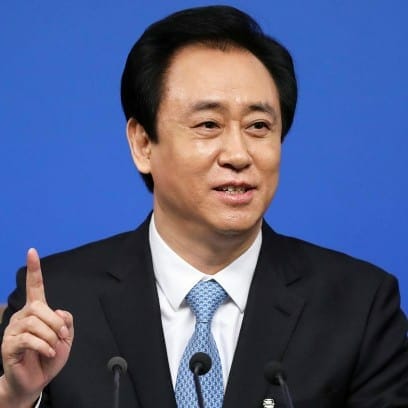China Evergrande Group, one of China’s largest real estate developers, has been plummeting toward defaulting on its debts—negatively impacting global markets. The company aggressively expanded with reckless abandon and is now the “most-indebted property developer in the world,” owing more than $300 billion. Should the default occur, it would be one of China’s largest.

Evergrande is incorporated in the Cayman Islands and headquartered in the Houhai Financial Center in Nanshan District, Shenzhen, Guangdong Province, China. It was founded in 1996 by Xu Jiayin.
Earlier this year, Chinese regulators under General Secretary of the Chinese Communist Party, Xi Jinping, made efforts to combat financial risk and debt, as China’s debt-to-GDP ratio has risen by roughly 45% in the last five years, which now sits around 270%. They began enforcing what was known as the three red lines, capping a company’s various debt ratios. This meant trouble for highly leveraged companies like Evergrande, which suddenly found itself unable to borrow.

Evergrande attempted to recover by hastily liquidating assets and cutting back operations, but the damage was done. Unable to meet its interest payments, Evergrande’s share price dropped by almost 80% this year, resulting in a loss in their market capitalization: from around $40 billion last year to under $4 billion. This forced the company to almost unilaterally halt construction across China, resulting in suppliers and employees protesting in front of Evergrande headquarters demanding payment. They also began paying investors with property as they struggled to find cash.
This move to pay investors with property only exacerbates another problem for Evergrande: it owes over 1.6 million apartments to people who have already paid cash deposits. These folks would likely lose their deposits should Evergrande go under. This coupled with the potential of unfinished construction highlights Evergrande’s gross mismanagement, which prompted the second-largest shareholder in the company to announce it would sell their entire stake.
The situation with Evergrande has continually changed over the week as it has negotiated a deal over a $35.9 million domestic bond payment last Wednesday, but it is still in a predicament. Foreign investors are in limbo as a Thursday deadline passed on a $83.5 million interest payment for a $2 billion bond that’s due to mature in March 2022. Evergrande has yet to provide a statement and now enters a 30-day grace period. It will default if that passes without payment.
According to Refinitiv Eikon, a $47.5 million dollar-bond interest payment is due September 29 on a 7-year U.S. dollar-denominated bond maturing in March 2024.
China finds itself weighing between potential economic disaster or rewarding reckless corporate behavior. It is important to note that the property sector in China accounts for nearly a quarter of its GDP, but many believe the Chinese government is unlikely to act.
“Beijing would only be compelled to step in if there is a far-reaching contagion causing multiple major developers to fail and posing systemic risks to the economy,” S&P Global Ratings analysts wrote. “Evergrande failing alone would unlikely result in such a scenario.”
So the general agreement among analysts is that while China will experience some economic disruption, this shouldn’t cause another global recession. This hasn’t stopped some from questioning if this is China’s equivalent to Lehman Brothers—whose collapse became a symbol of the 2007-2008 financial crisis.
Of the $305 billion in liabilities by Evergrande, some $20 billion of Evergrande’s debts are owed offshore—that is less than 10% of its total debt. The offshore exposure for Lehman Brothers was 40% for foreign investors.
“There seems to be a broad consensus that while bad, this isn’t China’s Lehman moment,” Economist and Nobel Laureate Paul Krugman said in a series of Tweets. “Of course, broad consensus have been wrong a lot these past 15 years. The financial disruption of 2008-9 was fairly brief — but the economy stayed depressed for many years thereafter.”
While cautious in tone, Krugman does add that the Chinese economy is “wildy unbalanced.”
The People’s Bank of China injected $71 billion last week into the banking system soothing fears of imminent contagion from the debt-laden property developer. It is the largest weekly sum by the Chinese Central Bank since January of this year.
The Wall Street Journal said, citing unnamed officials, that authorities asked local governments to prepare for Evergrande’s downfall and distress is already evident among Evergrande’s peers.









One Response